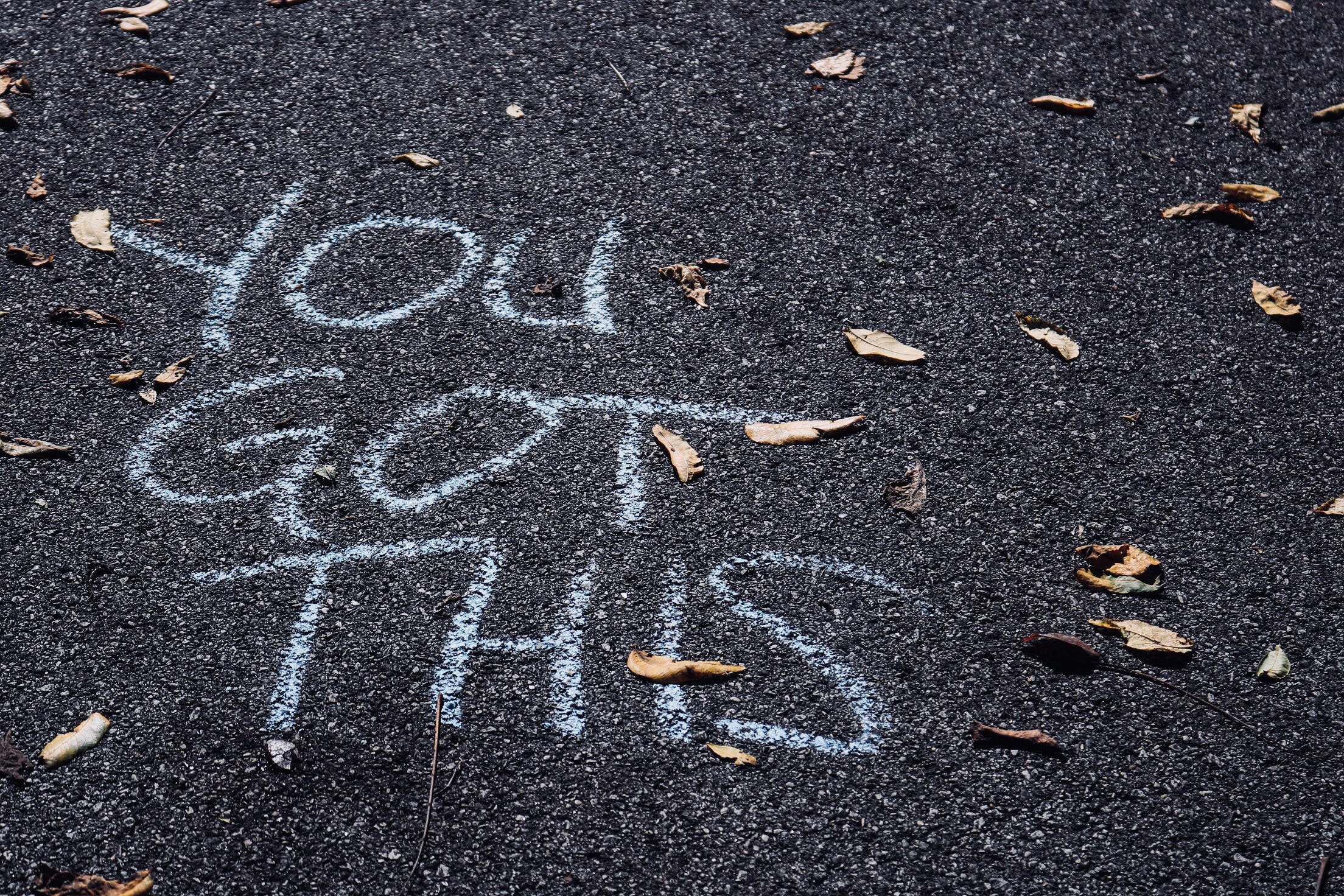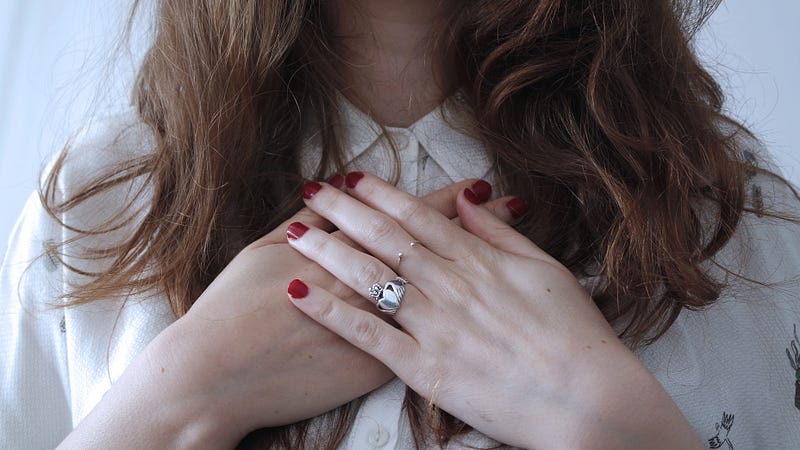
From weight loss. Yes, and no, and perhaps. Let’s talk.
Medium Peep Nadiah M. Noor wrote an article recently about the one thing that dogs all of us once we’ve finally lost the weight:
Maintenance.
This is the perpetual bugaboo of any of us, and my hand is up here, as for anyone who has ever lost ten or two hundred pounds.
My new buddy Katie Andrews has dropped 160 lbs so far and continues to go after it ounce by ounce, month by month, year by year. The reason it’s worked is that she’s made slow and gradual changes, and changes that became habits.
That’s one part that Nadiah focuses on, and I agree.
However, I plucked the title above from one of her bullet points, wherein the implication is that by losing the weight, these things automatically happen.
Kindly, I don’t think Ms. Noor intends to pitch this as an automatic by-product of weight loss, but too many of us might already be sold on the if only. If only I got skinny I’d have or be:
- Loved
- Popular
- Happier
- Better employed
- Have lots more relationships.
All these things are more are pitched to us all by the multi-billion dollar diet industry. They are, however, false promises. While some of us do indeed feel those things, if we expect them without doing the deep work, we might well be rather disappointed that the band doesn’t strike up Hail to the Chief each time we step on the scale.
Of course you could rig that up electronically, which, now that I think of it, is a pretty damned good idea. But I digress.
But, there’s a down side, especially if you have lost a great deal of size.
Those folks who successfully lost massive amounts of weight are often faced with a whole new ugly: acres of loose, swinging skin, making them look like human Shar Pei dogs.
Not only did those folks not sign up for that, they weren’t prepared for how this would make them feel, and the new challenges for what to do about it. Live with your brand new Elephant Man self until your body has decided that it’s going to stay lighter? Or get surgery to remove it, only to force THAT skin to stretch to accommodate the dreaded return?
No matter what you and I change, those changes may bring a brand new set of circumstances that nobody planned for. Stay with me here.
One thing that I wholeheartedly want to support in Noor’s article is her comment that nothing much changes any more.
In fact, this is SO important I want to address it separately. Given the emphasis our culture puts on being slim or at least being lighter, it’s very easy to believe at some level that when the bathroom scale suddenly delivers The MAGIC NUMBER, hordes of supporters, flying confetti and a standing ovation will ensue.
Yet nothing does. If anything, life is achingly normal, predictable and ho hum. To her article’s point, you and I- and this precisely how I did it- have to redirect that intense energy away from achieving THAT goal into something else equally important.
Because outside our immediate circle of friends, nobody much cares. Because everyone else is likely focusing on their own muffin tops or straining zippers.
Aye, there’s the (inner thigh) rub. We really, really want others to care about our achievement. We need that. Of course we do.
Just as we need the support for our slip-ups, which Noor also addresses.
The reason that all the weight loss group programs are so effective and seductive is the support. On one hand, we all celebrate the loss of ONE POUND. Cry with each other about the pound gained. Shriek and holler and celebrate over the TWO POUNDS lost. People get addicted to the support. What brings them back is failure. Weight Watchers banks on it.
I watched a girlfriend of mine do this dance for decades. She finally figured it out on her own, and brought herself down to the weight she was long before she married. But she had to remove herself from the cycle. This doesn’t say that everyone experiences this. But the powerful group dynamics can backfire for folks who aren’t strong enough, like my friend, to extricate themselves from the danger of the failure sandpit into which too many of us slip.
I appreciate the fact that Noor emphasizes that ultimately this long-term journey is among the three of us: me, myself and I. There is, in the final run, only how I self-manage. While support groups can help, as we all too often see with the Jenny Craigs, the sweet succor of loving forgiveness when we gorm an entire coconut cake or, in my case, two dozen hot Krispy Kreme (just for an appetizer, mind you) can sideswipe us because if we succeed…
We can leave ourselves open to vicious, jealous attack by the Mean Girls (or Guys).
As long as we’re all in the big boat, all is well. The second you DARE to climb out and walk away with half your body weight shed, sometimes the dynamics change. You’re wanted back in the fold, and sometimes those folks will do all they can to get you there. That by any other word is called sabotage. I’ve been subjected to it (my Dad, handing me big fat slices of steaming hot freshly-baked bread slathered in butter). He got angry and jealous that I had lost a ton of weight, and he was unable to rid himself of his bulging belly.
I’ll bet you’ve had this happen, too.
Noor writes:
(Successful long term weight loss management) requires long-term commitment and planning, consistent habits and most importantly being ready for whatever obstacles that lie ahead. It means not giving up at the encounter of a slip-up, but having a strategy to overcome it.
That strategy, I would add, includes being prepared for what your body does when it no longer has to support all that weight. Your skin might or might spring back. It depends. That strategy includes being prepared to be The Most UnPopular Girl or Guy at Weight Watchers because against all odds, you did indeed dump those 97 lbs and are waving good-bye. Duck the flying knives. You didn’t expect rejection. You wanted to be feted, not filleted.
I might posit that first, manage your expectations. Publisher’s Clearinghouse is NOT going to hand you a check the moment you finally reach your goal. You have to celebrate on your own. Cue spa visit.
Second, be prepared for pissed-off peeps. While Noor didn’t address this specifically, this is very, very real for those with tight support systems which feed on failures rather than truly support success. Don’t know? Watch what happens to your group when you announce that you’ve finally met your goal and you would love to celebrate with a big salad dinner at your house.
The one who shows up with a pan of your favorite brownies?
Evil Witch of the West.
So third, one habit I’d like to add to Noor’s list, is to find yourself a new community of folks who will happily reinforce your good habits. This may entail some very sad moments, but if you do, you will find those habits a lot easier to maintain.
Noor’s article is an essential part of post-weight loss recovery. I simply wanted to add some perspective to it, based on what 33 years of post-weight loss of eighty pounds has taught me. There have been gains and losses, not so much of pounds, but of friends, of communities, of hopes and expectations. When I finally realized that the only person who was really and truly invested in my overall health was the Great Triumvirate of Me, Myself and I, at that point I did a much better job of developing and maintaining lifelong habits.
She says, and she’s right, Dig deep. Weight loss in and of itself isn’t the point. The underlying dynamics of how we got to being overweight (if that’s not our natural set point and body type in the first place, which is another topic entirely) deserve to be addressed, or they will simply rise all over again either in the same or another. And boy am I the poster child for that.
The gentle, caring process of loving yourself enough to eat well, move more, and not sweat the occasional water weight is what keeps my buddy Katie Andrews going. She started a few years back at 425. Now she is 160 pounds down, and counting slowly, carefully, lovingly, ounce by ounce, while enjoying being out in life. What new friends she makes are not so much a function of her weight loss, but the weight she carried in her heart.
So it is with me, too. Being lighter didn’t get me much of anything that wasn’t always and forever available inside myself: love, acceptance, forgiveness, hope, joy, exhilaration. Losing the weight didn’t set that free. That didn’t happen until nearly twenty-four years AFTER the Big Loss.
It’s never, ever truly just about the weight. It is always and forever how heavy our hearts are.

Comments powered by Talkyard.